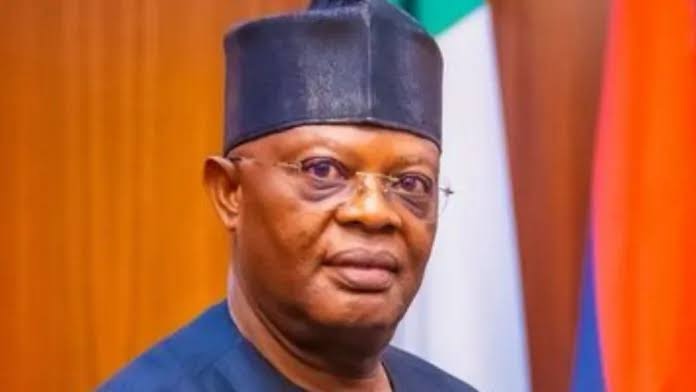As the argument between the Organised Labour and the Federal Government over a new National Minimum Wage continues, some Senior Advocates of Nigeria (SANs) have expressed divergent views on whether the proposed agreement between the two parties should be binding on states.
In their separate interviews with THISDAY, all the senior lawyers agreed that the issue of minimum wage is under the Exclusive List on Item 34 of Part 1 of the Second Schedule to the 1999 Constitution, which provides that the National Assembly has the power to “prescribe a national minimum wage for the Federation or any part thereof.”
However, Mike Ozekhome, Joseph Nwobike, Ebun Adegboruwa, John Baiyesea, Ahmed Raji, and Dayo Akinlaja, argued that Nigeria is a federation, the different federating units should negotiate separately based on their individual financial capacities.
But human rights lawyer, Mr. Femi Falana, a former Chairman of the Nigerian Bar Association (NBA), Abuja branch, Mr. Moses Ebute and Abiodun Olatunji, insisted that by virtue of Section 4 of the Constitution, the National Assembly is exclusively empowered to legislate on National Minimum Wage in Nigeria.
This is as the Nigeria Labour Congress (NLC) and the Trade Union Congress (TUC) described the claim by the Nigeria Governors’ Forum (NGF) that most of the states cannot pay a minimum wage of N60,000 as an act of bad faith.
Oyo State Governor, Seyi Makinde, however, insisted that the states should be allowed to sort the issues out with the organised labour, saying, “If you ask for my position on this issue, I will say the states should be left to sort themselves out with the labour,” Makinde told THISDAY, Saturday night.
According to Ozekhome, the power given to the National Assembly by the 1999 Constitution “is somewhat curious, as one would have thought that, given our federal as against unitary structure under the self-same Constitution, the National Assembly ought to only legislate for the federal workers, while states did the same for theirs. But that is clearly not the case.”
The constitutional lawyer stated that until the Constitution is amended, the National Assembly possesses the exclusive capacity to enact a national minimum wage for the whole country or any part thereof, which obviously includes the states.
He, however, argued that in practice, the states have always prescribed their own minimum wages as dictated by their individual financial capacities, adding that the Edo State government only just recently pegged theirs at N70,000.
On his part, Adegboruwa noted that Section 4 of the Constitution provides that only the National Assembly has the powers to make laws relating to issues of national minimum wage.
“However, we run a federation, which consists of the Federal Government, the state government and the local government. When laws are made by the National Assembly that applies to federal institutions and employees.
According to him, when the National Assembly makes an Act such as the National Minimum Wage Act, the state Houses of Assembly should work to also implement and incorporate that Act into their own laws for the purpose of enforcement.
He insisted that the Federal Government is not competent to negotiate on behalf of the states on minimum wage for workers.
Also contributing, Nwobike said the states being a legal entity are independent, and are entitled to enter into negotiations with their respective labour unions before enforceable agreements can be reached or implied.
He said: “There is no agreement between the organised labour and the federal government which binds the state governments. The state governments are independent legal entities which are entitled to enter into negotiations with their respective labour unions before enforceable agreements can be reached or implied. That is the law.”
Also speaking, Reverend John Baiyesea argued that rich states like Lagos, Kano, Rivers, should not be expected to pay workers the same amount as Kwara, Ekiti, Niger, and Zamfara, considered not to be rich.
“Therefore, negotiations ought to be from state to state based on capacities and capabilities of each state,” he said.
According to him, the National Assembly passed a National Minimum Wage Act of 2019, which fixed the minimum wage at N30,000 but up to 10 states have not been able to pay the N30,000.
Similarly, Dayo Akinlaja also argued that states should negotiate their own minimum wage, noting, “It stands to reason and logic that since the states are not equally endowed in terms of resources and wherewithal, no one state should be compelled to pay the same minimum wage with another or the Federal Government. It has to be understood that this is one of the touchstones that fundamentally define and render what we practice to be at best a pseudo federal system.”
According to him, “if there is any area that the Constitution has to be promptly tinkered with, this national minimum wage with its attendant debacle is a veritable one”, he said.


